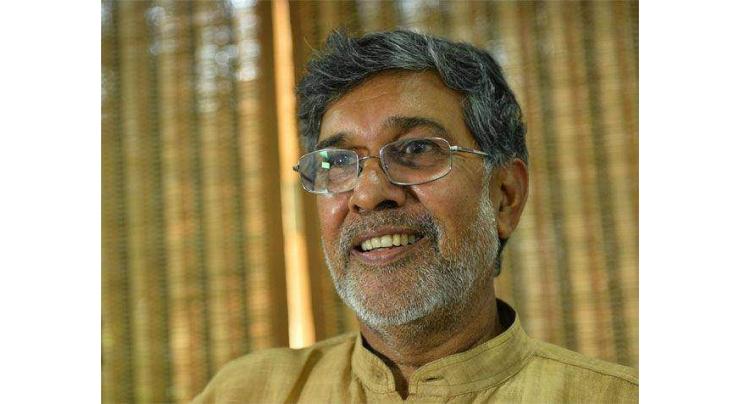
UNICEF Voices Concern Over Changes To India's Child Labour Law
Sumaira FH Published July 28, 2016 | 10:38 PM

UNITED NATIONS, (APP - UrduPoint / Pakistan Point News - 28th july, 2016) : UNICEF, the U.N. agency devoted to child welfare, has expressed serious concern over the changes made in India's child labour law which allows children to work in family enterprises, saying it could lead to more children working in unregulated conditions. In a statement, UNICEF urged the removal of certain provisions and establishing a robust monitoring mechanism with a thorough list of hazardous occupations for a stronger child protection framework. "Under the new Child Labour Act, some forms of child labour may become invisible and the most vulnerable and marginalized children may end up with irregular school attendance, lower levels of learning and could be forced to drop out of school", Euphrates Gobina, UNICEF India's Chief of education, said.
While welcoming the recent approval by India's "Council of States," also known as Rajya Sabha, to amend the Child Labour Bill prohibiting children under the age of 14 from working, UNICEF India is concerned about one provision stating that where the child helps his family or family enterprises, which is other than any hazardous occupations or processes set forth in the schedule, after his school hours or during vacations. This provision raises serious concerns as it not only legitimizes family work but it also could further disadvantage the most vulnerable children from poor families, said the agency. Moreover, the amended Bill might substantially reduce the list of professions considered hazardous, potentially leading to more children working in unregulated conditions, according to UNICEF. To strengthen the Bill and provide a stronger and more protective legal framework for children, UNICEF India strongly recommended the removal of children helping in family enterprises, which will protect children from being exploited in invisible forms of work, from trafficking and from boys and girls dropping out of school due to long hours of work.
"Secondary enrolment is still lagging behind, especially for the most vulnerable children, many who are working," Gobina said. A robust monitoring mechanism was also urged to ensure that accountability of all stakeholders is essential, especially because there is no reference to trafficking of children for work in the current Bill.
UNICEF further suggested an exhaustive list of hazardous occupations to be included and a system be developed to periodically review the same, and include more occupations as they emerge. According to UNICEF, there are approximately 10.2 million children working in India.
There has been an overall decline in the number of children working, although child labour has increased in urban areas due to children migrating or being trafficked to work in hazardous small scale industries or construction sites.
Family or home-based work for children in India is often hazardous and includes: working in cotton fields, making bangles and bidis, rolling tobacco, carpet weaving and metal work. According to the 2011 census, child labour rates in India are highest among scheduled Tribes (ST) at 6.7 per cent and Scheduled Castes (SC) at 3.9 per cent.
In both groups, children in rural areas are more likely to work than children from cities. Many children are forced to leave school to work.
Related Topics
Recent Stories

Cricket: England v West Indies 3rd Test scoreboard

Finance minister briefs Chinese officials on reform agenda, engagement with IMF

Finland says Russian vessel violated its territorial waters

Olympic opening ceremony under way on River Seine

West Indies' treble strike rocks England in third Test

Ukraine court orders detention of suspect in murder of nationalist ex-MP

Long queues, ticketing problems ahead of Paris opening ceremony

Rana Sanaullah Khan joins Paris 2024 Olympics inauguration reception

Glowing tributes mark 69th birthday of President Zardari at Governor's House

Players unaware of spying scandal as Canada Olympic coach sent home: official

Naqvi hails Pak women cricketers for going down fighting against SL

'Sabotage' on French rail network before Olympics: What we know
More Stories From World
-
Biden talks Gaza ceasefire efforts with king of Jordan
4 hours ago -
Sinaloa Cartel co-founder pleads not guilty after stunning US capture
4 hours ago -
Panama says Venezuela blocked ex-presidents going to observe polls
4 hours ago -
Ethiopia mourns victims of landslide tragedy
5 hours ago -
Khan Yunis fighting displaces 180,000 Gazans in four days: UN
5 hours ago -
Trump slams rivals as he meets Netanyahu in Florida
5 hours ago
-
Obama & his wife, Michelle, officially endorse US VP Kamala Harris for president
5 hours ago -
Rain, cooling slow huge blaze in Canada's Jasper park
5 hours ago -
Airbus and Boeing supremacy secure despite turbulence
5 hours ago -
S.African police detain 95 Libyans at suspected military camp
5 hours ago -
'Slapping therapist' guilty over UK diabetic woman's death
6 hours ago -
Panama says Venezuela blocked flight of ex-presidents going to observe polls
6 hours ago